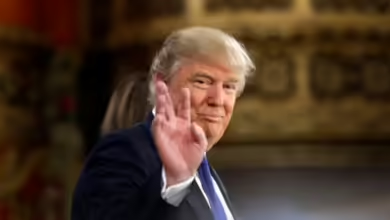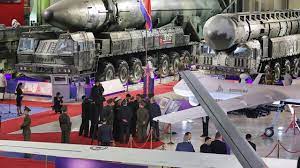Amidst a financial crisis, the Pakistani government faces the challenge of appointing a new finance minister
Islamabad, Feb. 21 (PTI) – Pakistan’s political standstill could come to an end with the creation of a coalition government, but the country’s economic concerns might not go away because of the Pakistan Muslim League-Nawaz party’s predicament about the choice of the nation’s much-needed finance minister.

In January, the financially beleaguered nation received a second tranche of more over USD 700 million from the Washington-based global lender as part of the USD 3 billion SBA that was first agreed to in June of last year, when Pakistan was gradually heading toward default.
One of the three major international rating agencies, Fitch Ratings, with headquarters in the US, said earlier this week in a study that Pakistan’s credit profile will be greatly impacted by a new contract with the International Monetary Fund (IMF) to replace the Stand-By Arrangement (SBA), which expires in March of this year.
Since Pakistan has not finished the previous USD 6.5 billion IMF rescue package, the incoming finance minister’s first priority would be to meet with the Washington-based global lender in order to get the final USD 1.2 billion loan tranche.
Additionally, he or she would have to begin talks for a fresh, long-term agreement.
A development late on Tuesday night may put an end to the nation’s political deadlock, almost two weeks after the February 8 general elections that produced a divided mandate. In order to create a new coalition government, the PML-N and the Pakistan Peoples Party (PPP) have reached a power-sharing agreement, with the Nawaz Sharif-led party serving as the main partner.
The Pakistan Muslim League-Nawaz (PML-N) must decide between appointing highly experienced former banker Ishaq Dar as the finance minister and bringing in a new face due to political pressures at this crucial economic juncture, according to The Express Tribune newspaper.
Without Dar, the PML-N may find itself depending on technocrats, as was the case with the PPP and the administrations of former prime minister Imran Khan’s Pakistan Tehreek-e-Insaf (PTI) faction. The PML-N has not developed second-tier economic leadership.
“Bringing in a banker as a finance minister might raise questions about conflicts of interest, but any inexperienced appointee might find it difficult to sit across the table and negotiate a deal that strikes a balance between economic stabilization and people’s growing miseries,” the newspaper observed.
Although the PPP has openly opposed Dar’s nomination, its objections are ineffective until the party actually enters the next administration.
The PML-N leader and former prime minister, Nawaz Sharif, would ultimately make the decision. He hasn’t yet expressed his opinions regarding his selection for the role.
The publication was informed by PML-N sources that the party is also looking into other possibilities, like as taking into consideration the names of two bankers, but no names have been confirmed.
Sources said that a sizable portion of the PML-N is opposed to Dar being appointed to the position a fifth time, but that “his name cannot be ruled out until Sharif shares his thoughts.” Dar has held four terms as finance minister and has a reputation as an IMF “tough negotiator.” His nomination is now being reevaluated, in part because of his interactions with the IMF.
The contradiction lies in the fact that while Dar is acknowledged for having finished the 2013–16 IMF program, the report also states that Dar’s management of the program was the main reason Pakistan was unable to successfully finish the most recent USD 6.5 billion bailout package.
The former finance minister said that geopolitics was the reason for the postponed loan program in his testimony to the Senate Standing Committee on Finance on June 16, 2023. He claimed that international organizations wanted Pakistan to enter discussions and default like Sri Lanka.
Although the US had expressed disapproval of Dar’s comments behind closed doors, the IMF had openly refuted this.
According to the sources, the Special Investment Facilitation Council’s (SIFC) future function and relationships with foreign countries and International Financial Institutions (IFIs) would be crucial factors in choosing the finance minister candidate.
According to the Express Tribune, if the party chooses to appoint a politician and Dar’s name is not selected, the options are limited following the departure of Miftah Ismail and Shahid Khaqan Abbasi. Therefore, the party may choose to appoint either former Minister for Economic Affairs Sardar Ayaz Sadiq or former Minister of Power Khawaja Mohammad Asif.
According to the article, “Bilal Kyani, a recently elected member of the National Assembly, could be appointed as the Minister of State for Finance in the central government, or he might be the next finance advisor to the chief minister of Punjab.”







